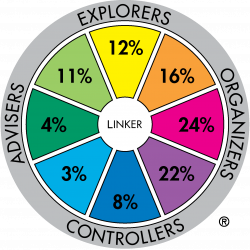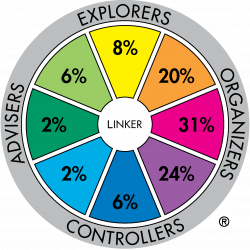What Drives Work in Education and Retail?
15 April 2025
What can work preferences tell us about the nature of an industry? A recent analysis by Team Management Systems (TMS) offers a compelling look at how role preferences, as measured by the Team Management Profile, vary across two of the world’s most critical sectors: Education and Retail.
Drawing on a global dataset of over 683,000 profiles across 55 countries, 65 industries, and 158 professions, this study reveals not only patterns, but deep insights into the behavioural energy that fuels each industry.
To illustrate the contrasts, two industry-specific samples were examined:
-
Education: 34,183 people
-
Retail: 18,160 people
The data from both industry groups is presented using the Team Management Wheel (see figures below). While role titles have been intentionally excluded for ease of interpretation, the distribution patterns across the Wheel reveal clear and meaningful distinctions in how individuals in each sector prefer to approach their work.
Figure 1. Major role preference distribution for worldwide industry sample: Education (n=34,183)
Figure 2. Major role preference distribution for worldwide industry sample: Retail (n=18,160)
A Values-Driven Approach in Education
In the Education sample, 7 percent of participants aligned most strongly with the Reporter–Adviser and Upholder–Maintainer roles. This compares with just 4 percent in Retail and in the total global sample.
These roles are defined by a preference for thoughtful analysis, value-based decision-making and behind-the-scenes influence.
-
Reporter–Advisers are natural synthesisers. They gather and communicate information with clarity and calm. Conflict-averse, they prefer to act with complete data and are often misunderstood as hesitant, when in fact they are thorough and principled.
-
Upholder–Maintainers are guided by strong personal values. They seek integrity, consistency and alignment with shared ideals. Often working quietly in the background, they contribute through support, structure and a deep concern for people.
These preferences mirror the competencies required of educators: patient inquiry, ethical grounding and relational support. It is no surprise, then, that these roles are more strongly represented in Education than in other industries.
A Bias for Action in Retail
In contrast, Thruster–Organisers were significantly more common in Retail (31 percent) than in Education (24 percent) or the global sample (28 percent).
-
Thruster–Organisers are task-focused and results-driven. They thrive on targets, deadlines and forward motion. Comfortable with conflict, they prioritise outcomes over consensus and are energised by making things happen.
This aligns closely with the demands of the retail environment: fast-paced, bottom-line focused and highly competitive. The pressure to deliver under shifting conditions rewards those who are decisive, pragmatic and unafraid to push through resistance.
What This Means for Industry Engagement
Understanding industry-wide work preferences is more than academic. It is essential for effective communication, change leadership and talent development. Here is how this insight plays out:
-
In Education, change initiatives must resonate with values. To gain traction, proposals should be framed around ethics, care and standards. Engagement grows when people see alignment with their personal and professional beliefs.
-
In Retail, the pitch must be practical. Ideas that deliver measurable impact, such as cost reduction, improved speed or stronger margins, will gain more attention than those built on abstract values. Clear logic, hard data and direct outcomes matter.
These patterns show how industries shape, and are shaped by, the preferences of the people within them. While individual differences will always exist, knowing the broader profile landscape equips leaders to communicate more effectively, design better interventions and build teams with complementary energies.
Work preference data is not about putting people in boxes. It is about recognising the energy they bring, and making sure it aligns with the work they do, the industries they serve and the change they are being asked to lead.



